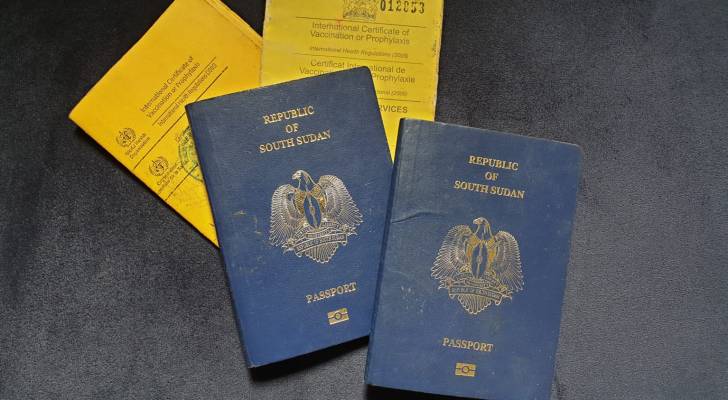South Sudanese passport
US revokes visas for South Sudanese passport holders
On Saturday, the US announced it would revoke all visas held by South Sudanese passport holders due to the South Sudanese government's failure to accept the return of its repatriated citizens.
The Trump administration implemented strict measures to enhance immigration enforcement, including the repatriation of individuals deemed to be in the US illegally. US officials have warned that countries failing to promptly accept their citizens will face repercussions, including visa sanctions and tariffs.
In a statement, US Secretary of State Marco Rubio highlighted South Sudan's noncompliance with the principle that all countries must accept the return of their citizens when requested by another nation. He stated, "Effective immediately, the United States Department of State is taking actions to revoke all visas held by South Sudanese passport holders and prevent further issuance to prevent entry into the United States by South Sudanese passport holders."
Rubio emphasized that the US would reconsider these actions only when South Sudan demonstrates full cooperation, adding, "It is time for South Sudan's transitional government to stop taking advantage of the United States."
The South Sudanese embassy in Washington did not immediately respond to requests for comment.
Previously, South Sudanese nationals had been granted "temporary protected status" (TPS) by the administration of Joe Biden, which is set to expire on May 3, 2025. TPS provides protection from deportation for foreign citizens unable to return safely to their home countries due to war, natural disasters, or other extraordinary circumstances.
According to the Department of Homeland Security, approximately 133 South Sudanese individuals were covered under the TPS program, with another 140 eligible to apply as of September 2023.
In South Sudan's capital, Juba, African Union mediators arrived this week for discussions aimed at preventing a new civil war following the house arrest of First Vice President Riek Machar. President Salva Kiir's government has accused Machar, who led rebel forces during the previous civil war from 2013 to 2018, of attempting to incite a new rebellion.
Machar's detention came after weeks of fighting between the military and the White Army militia in the northern Upper Nile state. Although Machar's forces were allied with the White Army during the previous conflict, they deny any current affiliation.
The 2013-2018 civil war in South Sudan was characterized by ethnic tensions, with fighters from the Dinka group, the largest in the country, supporting Kiir, while those from the Nuer group, the second largest, rallied behind Machar.




